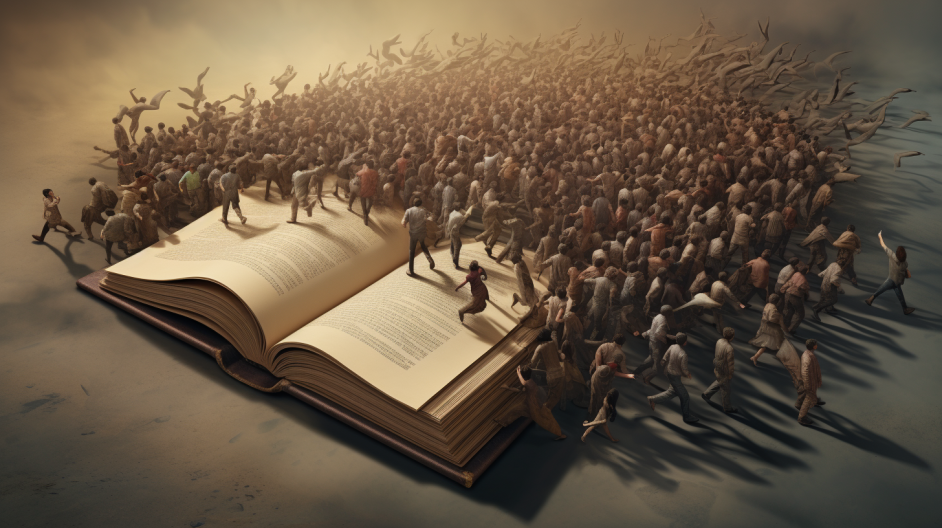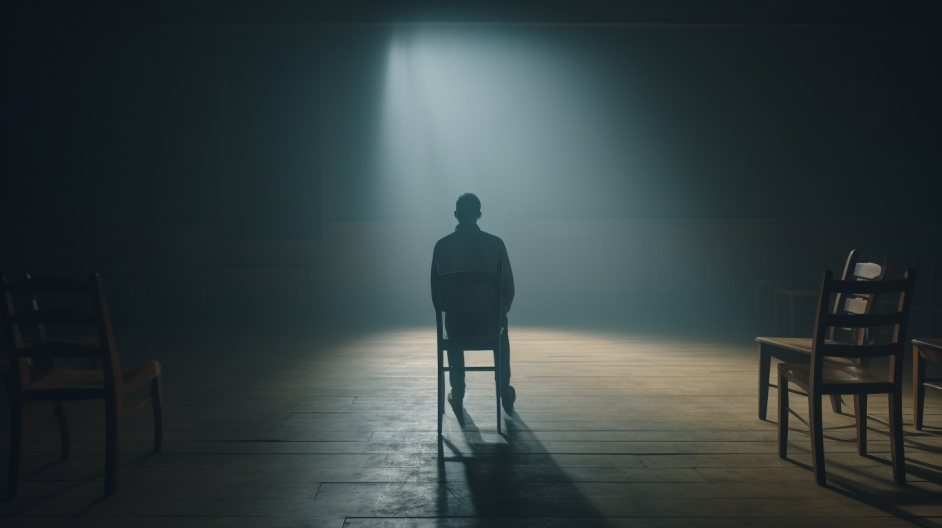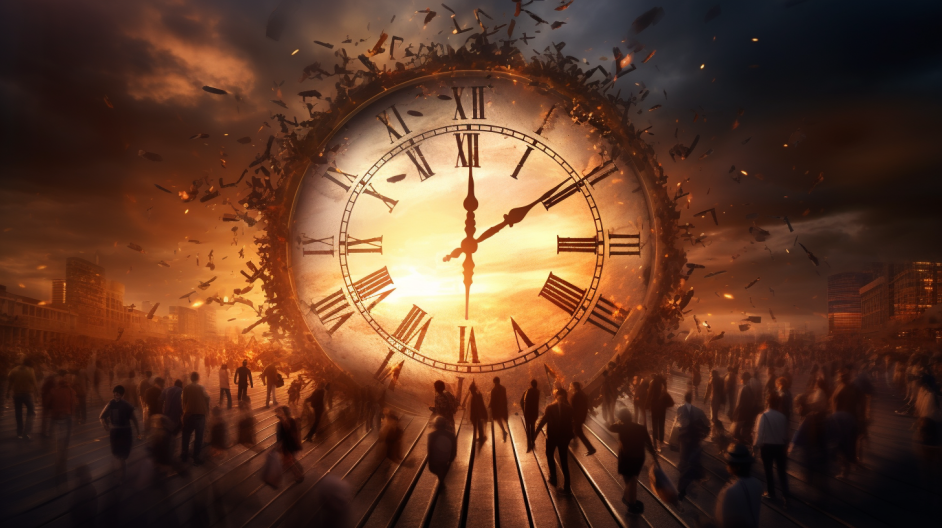Free Will, or would I say “Volition,” is a Trap that we all need to escape. Most people who view the world scientifically believe in “Causal Determinism,” meaning that every single thing follows the laws of physics, and every single thing that happens, is a result of the “Physics Laws” acting on the way things are in the world or were in the past. But it’s hard to understand how this fits with the idea of Free Will.
If you say everything is being controlled by “Casual determinism,” then our choices are also pre-determined. Are we exempted from these laws? And then, some argue we are in some sort of clockwork universe, which rules out Free Will.
Don’t you think this is going too far? Can we explain free will solely through physics or not?
THE ILLUSION OF FREE WILL

FREE WILL
What exactly is free will, and how can we even define it? To answer this, we need to answer two questions first. “What aspects of reality lead to the idea of free will, and what purpose does it serve?”
Before we go into some traditional definitions of free will, we need to simplify something. A good theory of free will should explain our strong sense of making choices. However, it doesn’t necessarily have to conclude that these choices are completely free from prior influences — that’s a matter of evidence and reason to determine.
It should also consider the conscious control we exercise in our daily lives. This involves actively setting goals, values, and plans. Even though these abilities arise from deterministic processes or not, they don’t need to be part of the free will definition.
With all that said, these are some traditional definitions of free will;
- We first see it as the ability to choose one of several possible alternatives to make decisions, the outcome of which is unknown in advance.
- Free will is the doctrine that human choices are not predetermined.
- Free will means that we are self-determined, not subject to forces outside of our control — we could have done otherwise.
- Free will is the ability to choose and act according to the dictates of our own will.
- Free will comprises choices not caused by and independent of antecedent factors.
There are many errors and ambiguities in these definitions. To uncover these issues, we’ll have to go back to what we know about free will and carefully examine it. Who makes the choices in these traditional definitions? What type of choices?, and what does it even mean to have chosen otherwise? Choices free from what? And how are these choices made?
When we talk about making choices, our mind, including all our mental processes, is responsible. Specifically, it’s the part of our mind that’s aware of our “self” and keeps track of our free will choices.
The traditional notion of “I CHOOSE” might be misleading, because it could imply a kind of separation between the mind and the body. In reality, there’s no distinct “I.” The “I” we experience comprises our self-image, self-concept, and self-awareness. Understanding this, is the key to understanding compatibilism, which sees free will as an integral part of the mind.
What kind of choices are we talking about? Well, Free will involves what I’ll call “conscious choices,” like deciding to think or not, what to think about, how long to focus on something, how many options to consider, and which option to choose. All of these sounds strange, buh that’s how our world is. STRANGE. Humans also make more profound choices related to our goals and values, such as character traits, careers, friends, lovers, and moral decisions like telling the truth or lying.
Free will, by definition, pertains to choices we can be aware of and influence. This doesn’t mean we have no control over subconscious or unconscious choices; we can indirectly control them by changing our values and beliefs and consciously adjusting our habits. Differentiating between conscious and subconscious thought is complex, as all conscious thought has underlying elements, and awareness varies in degree.
The question of whether these intelligent choices are products of mechanical processes and whether they are deterministic is not contained in the definition. And, What exactly does determinism even refer to?

Determinism is the philosophical idea that every event or state of affairs, including every human decision and action, is the inevitable and necessary consequence of antecedent states of affairs.
Interestingly, the implications of this seem to ‘feel’ quite a bit different whether one is backward or forward-looking.
Before quantum mechanics, people generally thought of determinism as being as simple as billiard-ball interactions.
Most physicists believe that quantum indeterminacy is not just a limit of our knowledge but an inherent part of reality itself. A small minority disagrees.
Regardless of this debate, what’s clear now is that it’s physically impossible to measure the initial quantum states accurately, making it impossible to predict outcomes.
Another relatively recent idea, “chaos theory,” adds another layer to the complexity of determinism. In certain systems (which are common in the natural world), our ability to predict future states is limited by how accurately we can measure initial conditions. Essentially, perfect prediction would require infinite precision, which is impossible. Moreover, in real-world situations, chaotic behavior tends to amplify uncertainty, making it nearly impossible to predict things like the weather at a specific location one year from now, even in theory.
It is regrettable that many excellent scientists have mixed up two connected philosophical ideas: determinism and free will. They often overlook the extensive philosophical discussions on this subject, which can complicate what appears to be a straightforward scientific argument.
Unlike science, philosophy isn’t about how the world works. It’s about how you talk about how the world works.
The phrase “I have free will” consists of four words, each holding a multitude of possible meanings. However, when it comes to the relationship between free will and determinism, there are three main perspectives.
It’s either. There is no determinism, and we have free will.
Or, There is determinism, and we have no free will.
And, there is determinism, and we have free will anyway.
The third option is called compatibilism because it says that determinism is compatible with definitions of free will. However, this concept can be quite tricky and doesn’t seem to be entirely convincing.

When we say that people are deterministic, we are drawing a comparison between physical laws (like how a falling stone behaves), and something we don’t fully understand, which is the human will or brain. Despite our knowledge about the brain, we still can’t predict exactly what a person will do. Therefore, we don’t have a logical reason to believe that people are entirely deterministic.
Ludwig Wittgenstein emphasized that free will is not an objective, fundamental reality, but a description we use for people, not objects.
To illustrate this, he used the example of water. Just because we say we have “3 liters of water” doesn’t mean that water itself has the property of “3-ness.” Similarly, just because the concept of free will doesn’t apply to falling stones doesn’t mean we can apply it to people without question.
Wittgenstein suggested that if we knew everything about the universe and could predict everything a person does, then we could make this analogy. However, the problem is that we can’t predict everything about human behavior, and we’re aware of this limitation.
In the 1980s, scientist Benjamin Libet conducted experiments that seemed to suggest our brains “register” a decision to move before we consciously decide to move.
In these experiments, each participant was asked to perform a simple task like pressing a button or moving their wrist while monitoring their brain activity with EEG electrodes and noting when they consciously decided to move.
Libet, and his team consistently found that there was brain activity associated with the action, which they called “readiness potential,” happening approximately half a second before participants were even aware of their decision to move. Well, this seemed to support the idea that our brains make decisions before we consciously realize them.
However, upon closer examination, Libet’s experiment raises several problems. For instance, it relies on participants’ own reports of when they felt the intention to move. One issue here is that there might be a delay between the impulse to act and their recording of it because they have to shift their attention from their intention to the clock.
Moreover, it’s debatable whether people can accurately pinpoint the moment of their decision to move. Our subjective awareness of such decisions is often unreliable.

Quantum physics tells us that the universe is very-very unpredictable. Every single thing in the universe is made up of particles that follow quantum laws. Meaning that no matter how precise our models are for things like objects falling, they can never be perfectly accurate. We can’t determine exactly where something is or exactly what it will do. But Instead, we can only make predictions based on averages.
Having more precise laws won’t solve this unpredictability because the core nature of reality itself is unpredictable.
And some of you may think that quantum physics, with its uncertainties and weirdness, could provide a path to escape classical physics determininm. Which is what we call “Indeterminism.” and this idea has been considered by so many philosophers and scientists, dating back to ancient Greece.
Indeterminism suggests that not every event has a clear cause. Some events might be random, for instance.
These random elements could make our choices not entirely predetermined. Some argue that only a portion of our decision-making process is influenced by causality, while the rest is under individual control.
One issue is that having choices made randomly instead of by strict causation doesn’t align with the free will most people envision. From a physical perspective, quantum mechanics may play a role in some of our brain activity, but not all of it tho. Many thinkers incorporate indeterminism into their models of free will to some extent but don’t rely on it entirely.
Some might argue that we don’t need extreme precision to predict human choices, like whether someone will choose vanilla or chocolate ice cream. However, chaos theory, as we’ve discussed before, complicates things.
The theory tells us that chaotic processes, although still deterministic, are just as unpredictable as quantum physics because we can never know their current state with enough precision. Slight differences in initial conditions can lead to significant differences in outcomes over time.
So, something as simple as a choice of ice cream flavor could depend on tiny variations like air temperature and humidity. It could even hinge on whether you arrived at the shop a few seconds earlier or later.
These seemingly small factors can have far-reaching effects. For instance, your choice of ice cream today might lead to a life-altering decision five years from now if, for example, you meet your future partner in that ice cream shop and they choose the exact flavor you chose.
So what do all of this mean? It means that you should choose your ice cream flavor carefully….I’m just kidding.
Well, it means that our choices might not be entirely predetermined due to random elements.
CLOCK SIMULATED DETERMINISM
Some philosophers have taken the idea of causal determinism we discussed earlier and used it to argue that there’s no room for free will at all. This position is known as ‘hard determinism,’ and it suggests that all our actions are absolutely necessary and determined by physics, much like how a billiard ball moves.
The French philosopher Baron d’Holbach explained this view:
“In simple terms, our actionsas humans, are never free; they will always be the inevitable result of our personality, our beliefs, and our notions of happiness, whether true or false. Our opinions are shaped by factors like, for example, education, and daily experience.”

There’s a theory held by a group of philosophers known as the Clockwork Universe.” Explaining it concisely can be challenging for those unfamiliar with philosophy, but let me explain it.
Picture our universe as some sort of GIANT CLOCK. In this clockwork universe, every event, from the movement of the planets, stars, and all those other bodies to the choices we make in our daily lives, is thought to follow a very precise, predetermined course of action. It’s just like how the gears and springs of a clock follow a predetermined path to tell time.
Now, if we apply this idea to the concept of free will, it suggests that everything, including our decisions, results from a long chain of causes and effects that stretches back to the very beginning of our universe. That our choices are not entirely free but rather influenced by the intricate workings of this cosmic clock.
Essentially, it argues that the idea of ‘free will’ is merely a mental illusion. Every decision we think we make for ourselves results from chemical reactions determined by previous ones, tracing all the way back to the creation of the universe.
Yeahhh… it’s a very strange theory. But it gets even weirder here…
We are all familiar with the simulated hypothesis. Which says that our entire existence is a meticulously constructed simulation, much like a sophisticated computer program.
You see, in a simulated reality, every aspect of our existence, including our thoughts, choices, and actions, could potentially be predetermined or controlled by the creators of the simulation.
This line of thinking challenges the traditional concept of free will. If our every move is programmed or scripted by a higher intelligence, it appears as though true free will becomes an illusion.
The idea that we might be living in a clockwork universe shares intriguing parallels with the concept of a simulated reality. it could be seen as a metaphor for the possibility that our reality is governed by a set of deterministic rules or laws, akin to the rules that might govern a simulation.
Strange Right?

Free will can be a tricky concept, but the effects of nature, random events, and past decisions are not eliminated but can actually be modified by our ability to project consequences and by our power to influence choices — by our awareness of free will itself.
While the debate may appear to involve semantics or redefine traditional definitions, it ultimately seeks to refine our understanding of free will by aligning it with the capacity to bring about different results.
And……that’s it. As always, thanks for reading today’s write-up, and also subscribe to our channel to get exciting topics like this.
Read more articles on our website.


